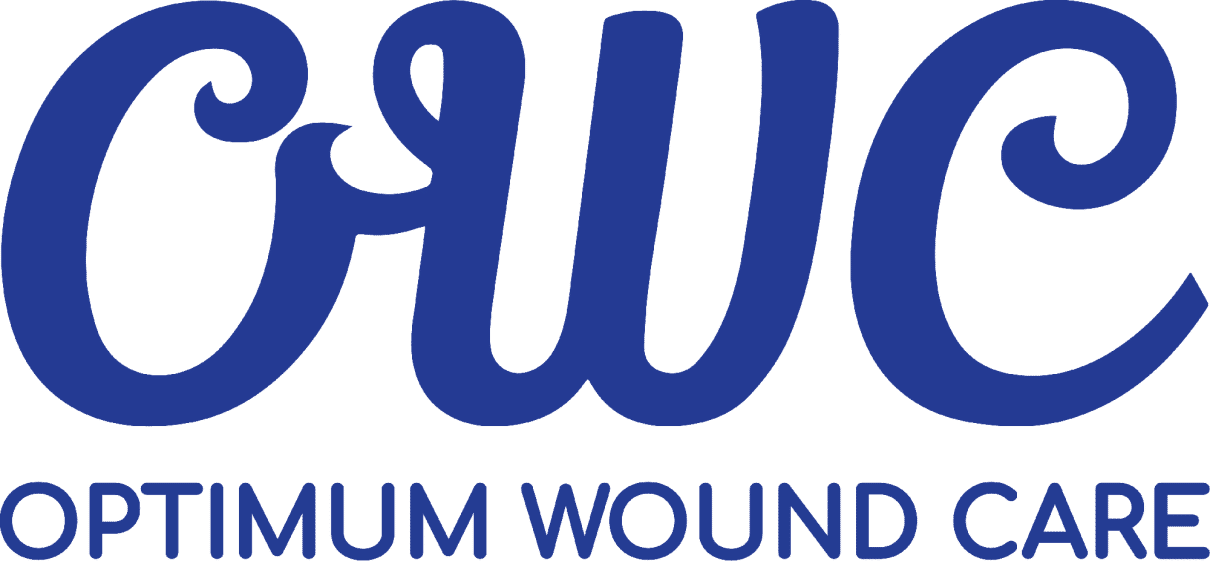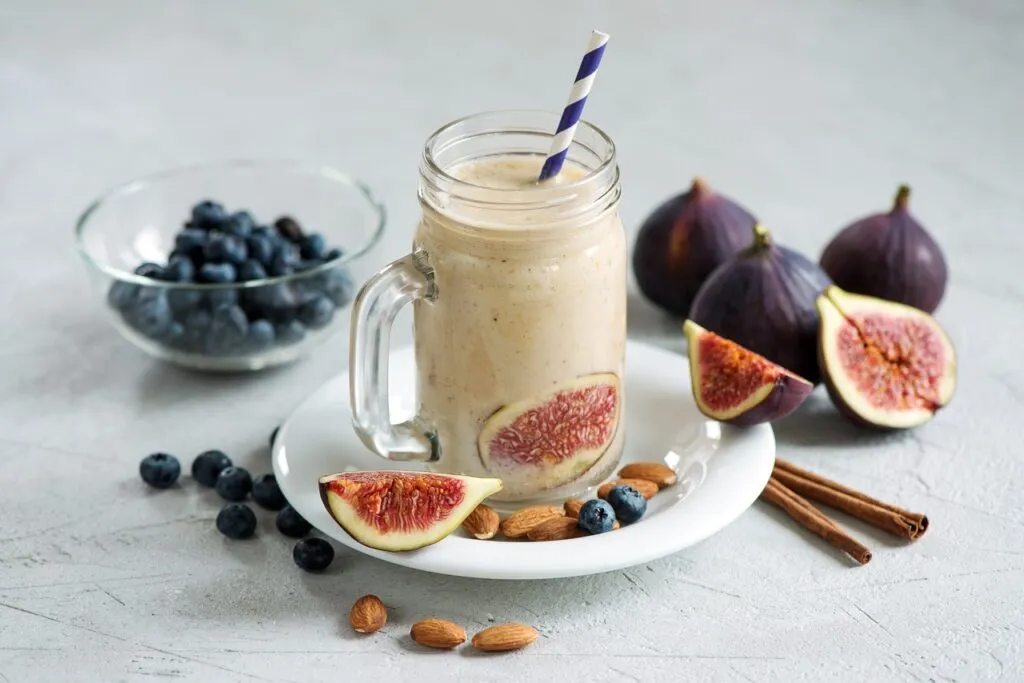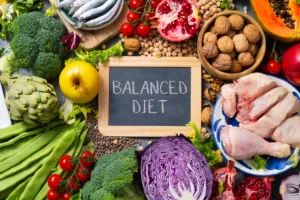The Role of Nutrition in Wound Healing
When it comes to healing wounds, most people think about bandages, medications, and treatments. But did you know that what you eat plays a critical role in how quickly and effectively your body recovers? Nutrition for wound healing is often overlooked, yet it’s one of the most powerful tools in supporting tissue repair, reducing inflammation, and preventing complications.
How Nutrition Impacts Wound Healing
Your body requires essential nutrients to repair damaged skin, fight infections, and produce new tissue. Without proper nutrition, wounds can take longer to heal, increasing the risk of chronic wounds and infections. Here’s why:
The Role of Nutrition in Wound Healing
1. Protein: The Building Block of Tissue Repair
Protein is essential for wound healing as it aids in cell growth, tissue regeneration, and immune function. A study published in PubMed highlights that adequate protein intake significantly enhances wound repair by stimulating collagen synthesis. Collagen is a primary structural protein that provides strength and stability to new tissue.
Sources of high-quality protein include:
- Lean meats (chicken, turkey, beef)
- Fish (salmon, tuna)
- Dairy products (yogurt, milk, cheese)
- Plant-based options (tofu, lentils, beans, nuts)
Tip: Patients with wounds should aim for at least 1.2 to 2.0 grams of protein per kilogram of body weight per day, as recommended by wound care specialists.
2. Vitamin C: Collagen Production and Antioxidant Support
In addition to protein, vitamins play a key role in wound recovery. One of the most essential is vitamin C, which plays a crucial role in collagen formation, which is necessary for the repair of damaged skin and tissues. It also acts as a powerful antioxidant, reducing oxidative stress that can delay healing.
A report from the National Institutes of Health (NIH) emphasizes the importance of vitamin C in preventing wound infections and improving tissue regeneration.
Top food sources of vitamin C include:
- Citrus fruits (oranges, lemons, grapefruit)
- Strawberries and kiwis
- Bell peppers
- Leafy greens (spinach, kale)
Tip: Consider incorporating a vitamin C-rich smoothie into your diet to boost wound recovery.
3. Vitamin A: Enhancing Immune Response and Epithelialization
Vitamin A is vital for wound healing as it promotes epithelial cell growth, supports the immune system, and helps prevent infections.
Studies suggest that vitamin A supplementation can enhance tissue repair, particularly in individuals with chronic wounds. However, excessive intake can be harmful, so patients should follow their healthcare provider’s recommendations.
Sources of vitamin A include:
- Carrots and sweet potatoes
- Eggs and dairy products
- Dark leafy greens
- Liver and fish oils
Tip: A balanced intake of vitamin A supports faster wound closure and reduces the risk of infection.
4. Zinc: Aiding Cell Growth and Immunity
Zinc is a trace mineral essential for cell proliferation, immune defense, and inflammatory response regulation. Deficiencies in zinc have been linked to delayed wound healing and increased susceptibility to infections.
Good sources of zinc include:
- Shellfish (oysters, shrimp)
- Beef and poultry
- Nuts and seeds (pumpkin seeds, almonds)
- Whole grains (quinoa, fortified cereals)
Tip: A moderate intake of zinc through diet or supplementation can significantly enhance the healing process.
5. Hydration: The Overlooked Factor in Healing
Water plays a critical role in transporting nutrients to cells, maintaining skin elasticity, and flushing out toxins. Dehydration can lead to dry, fragile skin, which is more prone to injury and slow healing.
Patients should aim for at least 8-10 glasses of water daily, depending on their activity level and overall health.
Tip: Herbal teas, broths, and hydrating fruits like watermelon and cucumbers can contribute to overall hydration levels.
Common Nutritional Deficiencies That Delay Wound Healing
Several nutrient deficiencies can negatively impact the body’s ability to heal wounds effectively. These include:
- Protein deficiency: Leads to muscle breakdown and prolonged inflammation.
- Vitamin C deficiency: Reduces collagen synthesis, leading to weak scar formation.
- Zinc deficiency: Increases susceptibility to infections and delays new tissue formation.
- Iron deficiency: Results in reduced oxygen transport to tissues, impairing wound repair.
How to Optimize Nutrition for Faster Wound Healing
- Consume a balanced diet rich in protein, vitamins, and minerals.
- Include omega-3 fatty acids (found in fish, flaxseeds, and walnuts) to reduce inflammation.
- Limit processed foods that may contribute to chronic inflammation.
- Monitor blood sugar levels in diabetic patients, as high glucose levels can slow wound healing.
- Consult a nutritionist or wound care specialist for personalized dietary recommendations.
Protein-Rich Foods: The Foundation of Tissue Repair
Protein is crucial for wound healing as it aids in cell growth, collagen production, and immune function. Without adequate protein, wounds may take longer to heal, and scar tissue may be weaker.
Best Protein Sources:
- Lean Meats: Chicken, turkey, and fish provide high-quality protein essential for tissue regeneration.
- Dairy Products: Greek yogurt, eggs, and cheese are excellent sources of protein and essential amino acids.
- Plant-Based Options: Tofu, lentils, and beans offer protein alternatives for vegetarians and vegans.
Tip: Aim for at least 1.2 to 2.0 grams of protein per kilogram of body weight daily to support wound healing.
Vitamin C: Boosting Collagen Synthesis and Immunity
Vitamin C is a powerful antioxidant that plays a critical role in collagen production, which strengthens and rebuilds damaged tissues. It also helps the body fight infections, reducing complications during recovery.
Top Vitamin C Foods:
- Fruits: Oranges, strawberries, and kiwis are packed with vitamin C and other antioxidants.
- Vegetables: Red peppers, tomatoes, and leafy greens (such as spinach and kale) provide excellent sources of vitamin C.
Tip: Include vitamin C-rich foods in every meal for enhanced wound healing and immune function.
Iron-Rich Options: Supporting Oxygen Transport
Iron is necessary for red blood cell production, which delivers oxygen to tissues and promotes faster healing. A deficiency in iron can lead to fatigue, slow wound healing, and increased risk of infection.
Best Iron Sources:
- Animal-Based: Lean beef, liver, and fortified cereals contain high amounts of heme iron, which is easily absorbed by the body.
- Plant-Based: Spinach, lentils, and quinoa offer non-heme iron, which can be better absorbed when consumed with vitamin C-rich foods.
Tip: If you follow a vegetarian or vegan diet, pair iron-rich foods with citrus fruits to boost absorption.
Omega-3 Fatty Acids: Reducing Inflammation
Omega-3 fatty acids are known for their anti-inflammatory properties, which can help reduce excessive swelling around wounds and promote better circulation for healing.
Best Omega-3 Sources:
- Fatty Fish: Salmon, sardines, and mackerel are rich in omega-3s and beneficial for overall health.
- Plant-Based: Walnuts, chia seeds, and flaxseeds provide excellent sources of omega-3s for vegetarians.
Tip: Consuming omega-3-rich foods at least twice a week can help improve wound recovery and reduce chronic inflammation.
Hydration & Electrolytes: Maintaining Skin Elasticity and Circulation
Water is essential for keeping skin hydrated, improving circulation, and preventing dehydration, which can delay wound healing.
Best Hydration Sources:
- Water: The simplest and best way to stay hydrated.
- Coconut Water: A natural source of electrolytes that helps maintain fluid balance.
- Hydrating Foods: Cucumbers, watermelon, and oranges contain high water content and additional nutrients.
Tip: Drink at least 8-10 glasses of water daily and consume hydrating foods to support the healing process.
Meal Plan for Optimal Wound Healing
To maximize healing, consider incorporating these foods into a daily meal plan:
Breakfast: Greek yogurt with strawberries, flaxseeds, and a handful of walnuts. Lunch: Grilled chicken salad with spinach, red peppers, quinoa, and citrus dressing. Snack: A smoothie made with oranges, bananas, and chia seeds. Dinner: Baked salmon with roasted sweet potatoes and steamed broccoli. Hydration: Water and coconut water throughout the day.
Foods to Avoid During Recovery
Some foods can slow down healing, increase inflammation, or negatively affect circulation. Try to limit:
- Processed foods (high in sugar and unhealthy fats)
- Alcohol (reduces immune function and nutrient absorption)
- Excessive salt (can lead to dehydration and poor circulation)
- Sugary drinks (cause blood sugar spikes, which are especially problematic for diabetics)
Need advanced therapies for chronic wounds? Read about Healing Vascular Wounds.
The Science Behind Nutrition and Wound Healing
Scientific research supports the role of nutrition in wound healing. According to a study published in PubMed, adequate protein intake significantly enhances wound repair by stimulating collagen synthesis. Additionally, a report from the National Institutes of Health emphasizes the importance of vitamins A and C in preventing wound infections and improving tissue regeneration.
For real-life experiences of patients recovering with expert wound care, check out our Patient Testimonials.
Final Thoughts
Good nutrition is one of the most effective ways to support wound healing. By eating a well-balanced diet, staying hydrated, and avoiding inflammatory foods, you can speed up recovery and prevent complications. If you need expert wound care, visit OWC Center to learn more.
If you found this helpful, share it with someone who could benefit from better wound healing strategies!
What you eat has a bigger impact on healing than most people realize. The right balance of protein, vitamins, and hydration can make all the difference in how quickly wounds recover, while inflammatory foods can slow things down. Small changes—like adding more nutrient-rich foods to your diet and staying well-hydrated—can go a long way in supporting your body’s natural healing process.
For those facing slow-healing wounds or chronic conditions, advanced wound care options can provide the extra support needed for recovery. Explore expert treatment options at OWC Center and take the next step toward healing.
Key Takeaways
- Good Nutrition Speeds Up Wound Healing
A diet rich in protein, vitamins, and minerals plays a vital role in wound recovery. Essential nutrients like vitamin C, zinc, and iron help strengthen tissues, fight infections, and support faster healing. If you’re dealing with a chronic or slow-healing wound, combining proper nutrition with advanced wound care can make a significant difference. - Protein is Essential for Tissue Repair
Your body needs protein to rebuild damaged tissues and produce collagen, a crucial component of wound healing. Without enough protein, wounds may heal slowly or remain open longer. To learn more about how protein impacts recovery, visit our wound healing services. - Hydration is Key to Skin Health and Healing
Dehydration can lead to dry, fragile skin, making wounds more susceptible to damage. Drinking plenty of water and consuming hydrating foods like cucumbers and oranges can help maintain skin elasticity and speed up healing. If you have a wound that isn’t healing well, explore our expert wound care solutions. - Certain Foods Can Slow Down Recovery
Processed foods, excessive sugar, and alcohol can increase inflammation and weaken the immune system, making wound healing more difficult. Avoiding these foods and focusing on a balanced diet can significantly improve your recovery. If you’re managing a chronic wound, OWC Center’s specialized treatments can help.5. Chronic Wounds Require a Holistic Approach
For individuals with diabetes, vascular issues, or other conditions, proper nutrition is just one piece of the puzzle. A combination of medical treatment, proper wound care, and a balanced diet is essential for long-term healing. If you or a loved one needs expert care, schedule a consultation with our specialists today.
Common Questions About Nutrition and Wound Healing
1. How does poor nutrition affect wound healing?
Poor nutrition can significantly slow down the wound healing process and increase the risk of complications like infections or chronic wounds. Here’s how:
- Lack of Protein: Leads to delayed tissue repair and weak wound closure.
- Vitamin Deficiencies: Without enough vitamin C, collagen production is impaired, making wounds weaker.
- Iron Deficiency: Can reduce oxygen supply to tissues, slowing down recovery.
- Dehydration: Can make the skin less elastic, leading to delayed healing and an increased risk of pressure injuries.
If you or a loved one are recovering from a wound, ensuring a balanced diet with plenty of these essential nutrients can make a big difference. Learn more about wound care at OWC Center.
2. What foods should I eat to speed up wound healing?
Eating a well-balanced diet rich in wound-healing nutrients can promote faster recovery. Consider including:
- Protein-Rich Foods: Chicken, fish, tofu, Greek yogurt, and eggs
- Vitamin C Sources: Oranges, kiwis, tomatoes, and red peppers
- Iron-Rich Options: Beef, lentils, fortified cereals, and spinach
- Omega-3 Fats: Salmon, walnuts, flaxseeds, and chia seeds
- Hydration: Drink plenty of water and include hydrating foods like cucumbers and watermelon
3. Are there foods I should avoid while recovering from a wound?
Yes! Some foods can slow down healing or increase inflammation, making recovery more difficult. Try to avoid:
- Processed Foods: High in sugar and unhealthy fats, which can cause inflammation
- Alcohol: Can impair immune function and reduce nutrient absorption
- Excessive Salt: Can lead to dehydration and poor circulation
- Sugary Drinks: Can cause blood sugar spikes, which can negatively affect healing in diabetics
For more advanced wound care solutions, visit OWC Center.
4. Can nutrition help prevent chronic wounds or ulcers?
Absolutely! A well-balanced diet helps maintain healthy skin and tissue, reducing the risk of chronic wounds, especially in individuals with diabetes or poor circulation. Here’s how:
- Stable Blood Sugar Levels: Reducing processed sugars can prevent diabetic ulcers.
- Healthy Fats & Protein: Strengthen skin and prevent pressure injuries.
- Hydration: Keeps the skin supple and resistant to breakdown.
- Antioxidants: Found in berries, green tea, and leafy greens, help fight inflammation.
5. How can I ensure proper nutrition if I have a reduced appetite?
For individuals struggling with poor appetite due to illness, medication, or aging, try these strategies:
- Small, Frequent Meals: Instead of large meals, eat smaller portions throughout the day.
- Nutrient-Dense Snacks: Greek yogurt, nuts, smoothies, or protein bars.
- Protein Supplements: Consider shakes or powders if eating enough protein is challenging.
- Flavor Enhancers: Herbs, lemon juice, or mild spices can make food more appealing.





